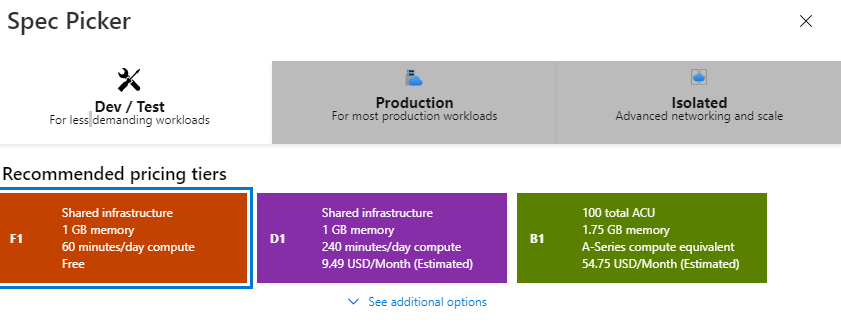Newapl21-8123, As TakahitoIwasa mentioned, you may leverage Basic or higher plan based on your requirement for testing. Off course, as shared tiers are intended for testing/deployment, you can always start by leveraging F1, D1 and then switch to B1 tier.
The F1 and D1 hosting plans are base tiers that run on the same Azure VMs as other App Service apps. Some apps might belong to other customers, and they have quota limits. Also, these tiers cannot be scaled out (add more instances) like on other higher tiers (B1 and above)
Just to highlight further, on App Service, you could have multiple separate apps in the same App Service Plan (ASP), since you pay only for ASP, saving costs.
As for as instances and content, the content share (%HOME%) directory contains an app's content, and application code can write to it. If an app runs on multiple instances, the %HOME% directory is shared among all instances so that all instances see the same directory. So, for example, if an app saves uploaded files to the %HOME% directory, those files are immediately available to all instances.
The temporary local storage (%SystemDrive%\local) directory is not shared between instances, neither is it shared between the app and its Kudu (SCM) app.
If you still have any questions on this, please just let us know we will be more than happy to assist you further.
--
To benefit the community find the right answers, please do mark the post which was helpful by clicking on ‘Accept Answer’ & ‘Up-Vote’.

